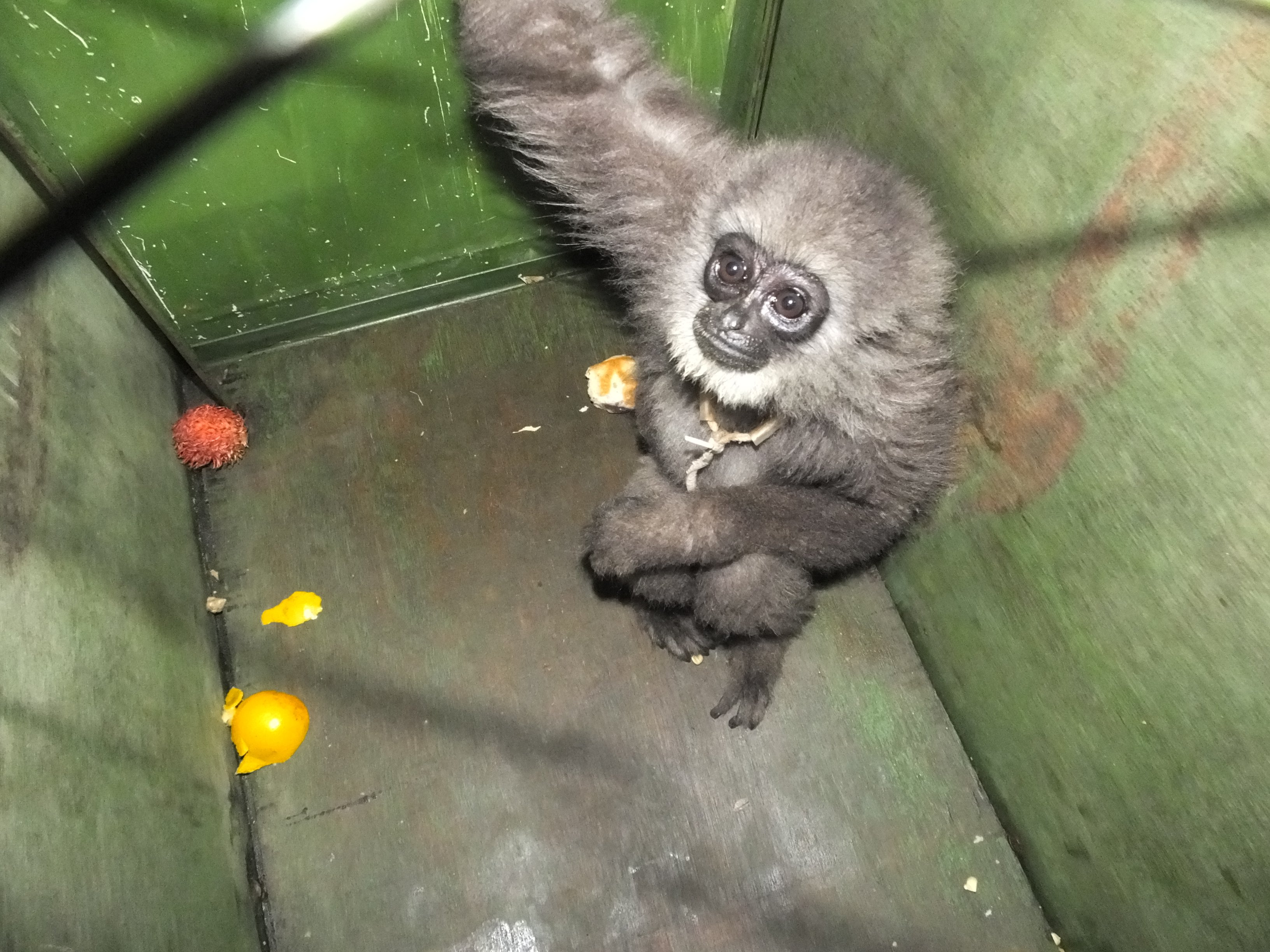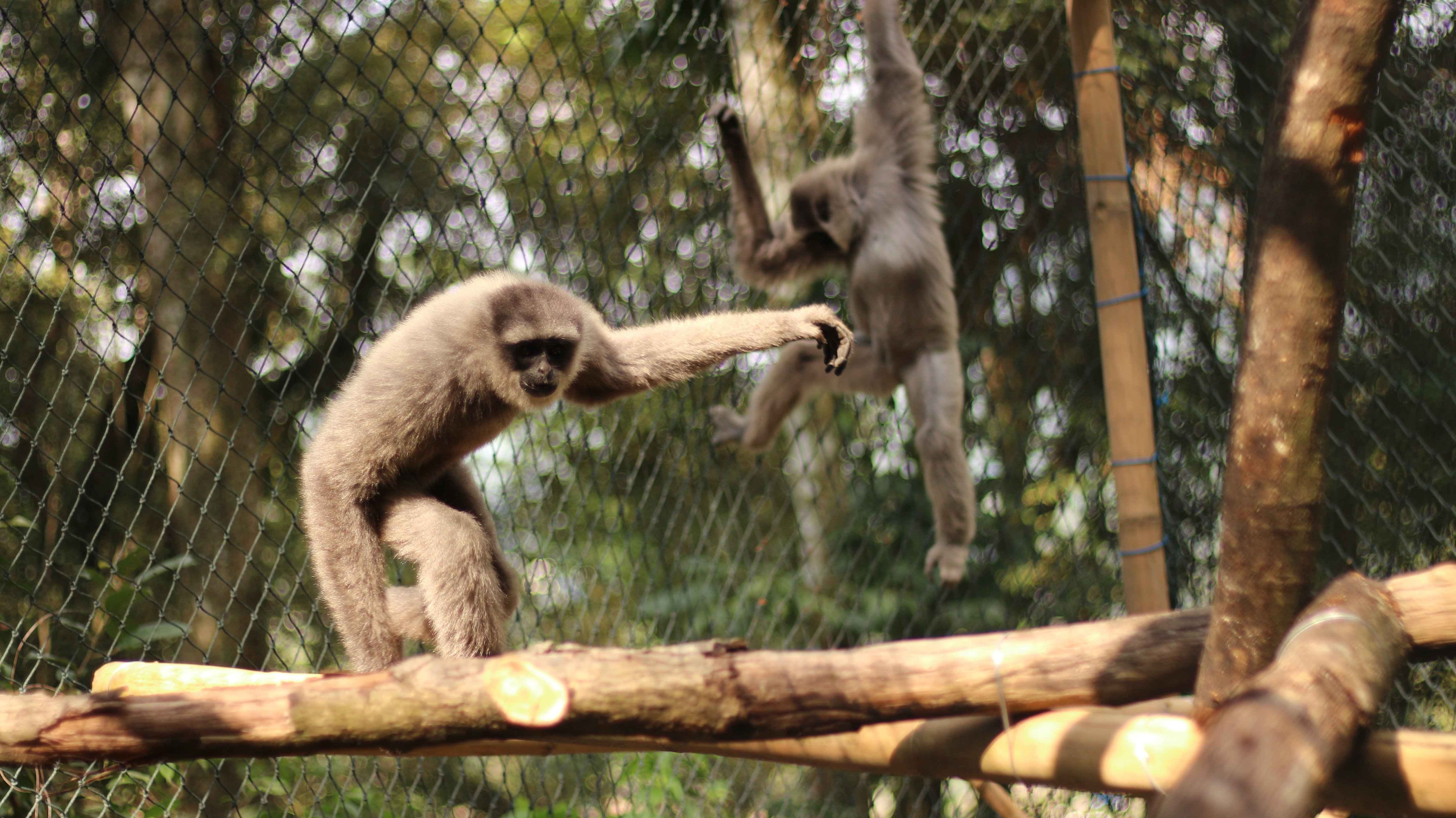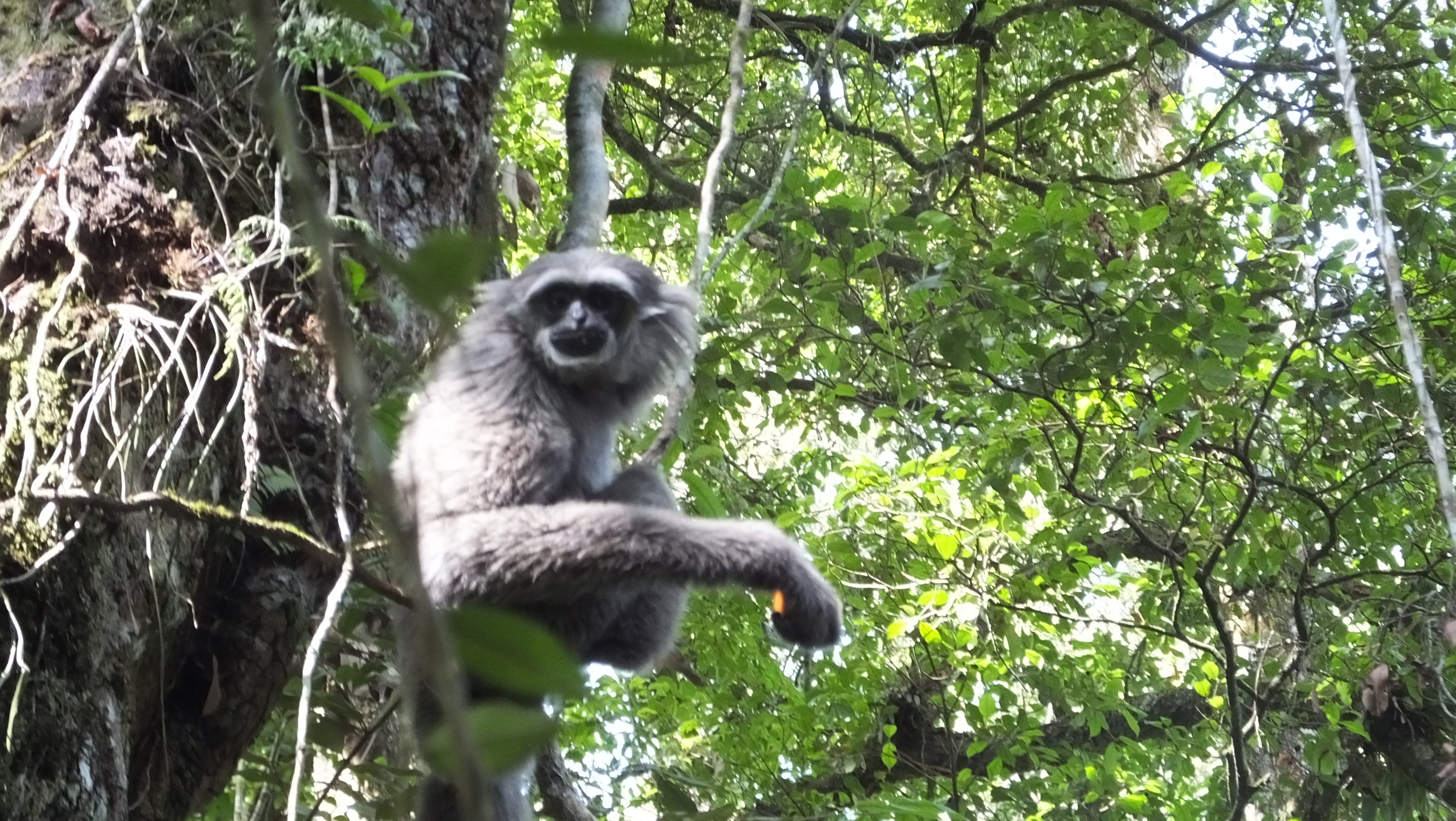Often referred to as silvery gibbons because of their dense soft grey fur, moloch gibbons are unique to the Indonesian island of Java. With only an estimated 4,000-5,000 living in the wild the numbers continue to decrease, due to factors such as habitat loss mainly from encroachment and conversion of forest into agroforestry and agriculture.

Rescued baby Javan gibbon prior to transfer to The Aspinall Foundation’s Javan Primate Rehabilitation Centre, Patuha, West Java © The Aspinall Foundation.
The high level of urbanization has significantly increased the human population on the island and the impact of pressure from human activities has led to a substantial decrease in suitable forest areas for wildlife such as gibbons and other endemic primates of Java. Whilst this loss of habitat is the primary threat the illegal pet trade is another significant risk to their survival. Gibbons are traded in the wildlife markets in Indonesia and on a wider-reaching scale via the internet/on-line market.
Gibbons are recognised as one of the most threatened primate ‘families’ globally and Javan gibbons are classified as Endangered on the IUCN Red List. The threat of extinction is even greater because so many subpopulations are isolated from each other, fragmented when they become marooned in small remnants of forest.
Currently, compared to some of the great apes, there is a limited amount of conservation work in respect of the 20 gibbon species. Yet all except one of these species, which is classified as Vulnerable, are either Endangered or Critically Endangered. To protect these primates from extinction it is critical that further habitat loss is prevented, the illegal trade in animals is halted, and that remaining populations are given the chance to recover. This is a significant task, and one that we believe can only be achieved by working alongside local communities.

Successful rehabilitated pairing of Javan gibbons in habituation cage shortly before release back to the wild. © The Aspinall Foundation
The Aspinall Foundation has been working with Javan gibbons since 1984 with our UK parks captive breeding programme, and since 2011 in Java when our first rescued wild-born gibbon arrived at our Javan Primate Rehabilitation Centre in West Java. Our Mt. Tilu NR project focuses on the reinforcement of the gibbon population in the nature reserve. Based on survey and assessment only 40 to 45 individuals were left in the 8,000 hectare forest. Since the first rewilding of rescue gibbons we have successfully released 40 gibbons back to the wild and a few have gone on to give birth in the wild. Over the next two years we aim to continue planning the release of a further 20 gibbons at Mt Tilu. This work will be carried out alongside an educational and awareness-raising programme for local communities to provide a multi-level approach to the project.
After a slight delay due to the coronavirus pandemic the project began in August 2020 and we are delighted to announce our first two gibbons were released at Mt Tilu at the beginning of October. A bonded pair, Lilo and Jojo, are both wild-born gibbons rescued from the illegal pet trade. When they arrived at the Rehabilitation Centre they were both very young orphans, approximately a year old. Our dedicated team at TAF Indonesia have cared for these youngsters for three years, helping them to overcome the unnatural behaviour they exhibited on arrival, nursing them to good physical condition, and enabling them to develop new patterns of behaviour in readiness for their return to the wild. Further releases are planned in the coming months.

Cheri, our first Javan gibbon to be released back to the wild. © The Aspinall Foundation
This project is part of the Javan Primates Conservation Programme (JPCP), managed cooperatively since 2010 by the Ministry of Environment and Forestry of the Republic of Indonesia and The Aspinall Foundation. We are also extremely grateful for the support of IUCN Save our Species who are helping to support this two-year project.
This project is co funded by IUCN Save Our Species. The contents of this article are the sole responsibility of The Aspinall Foundation and do not necessarily reflect the views of IUCN.

